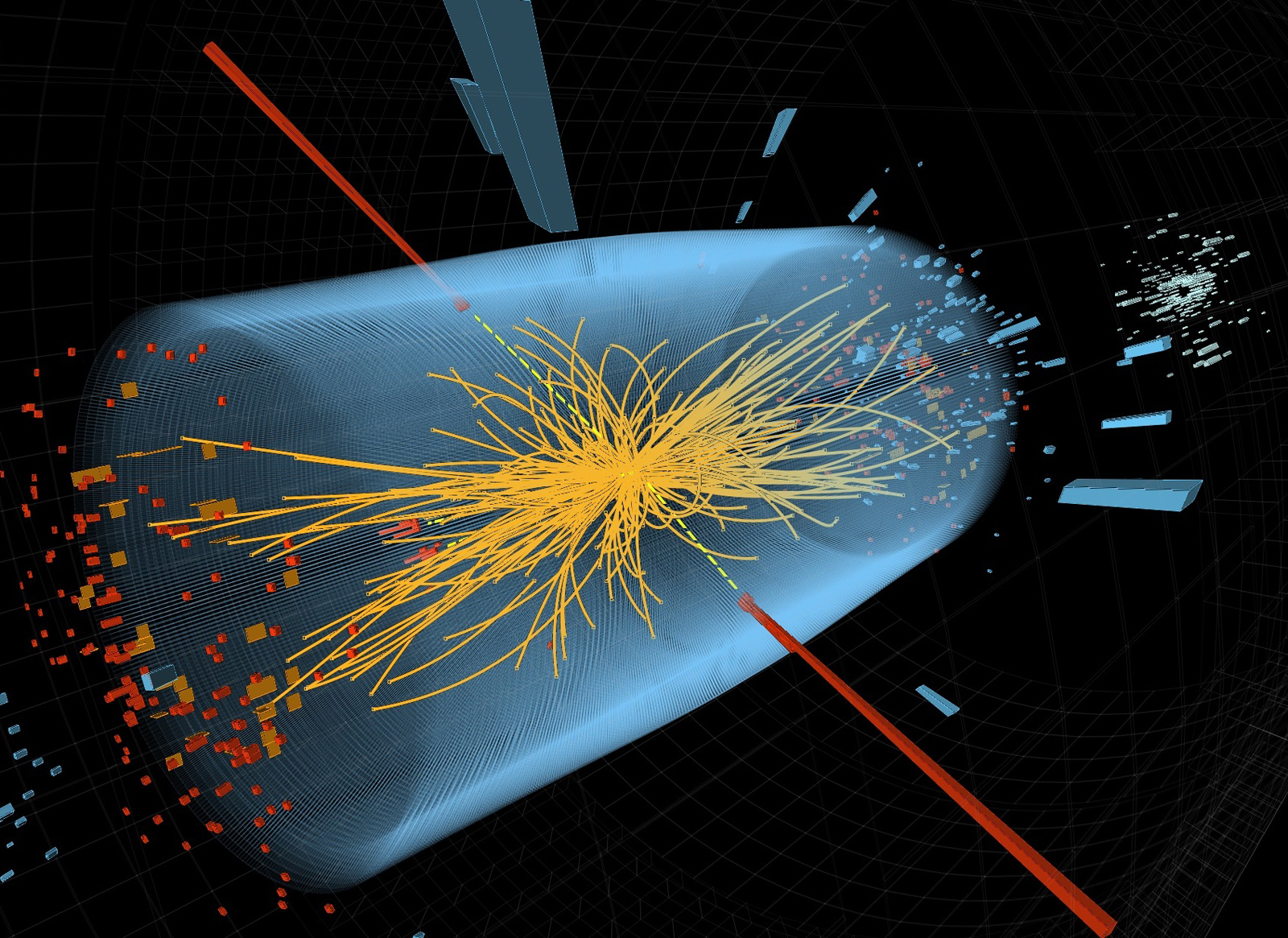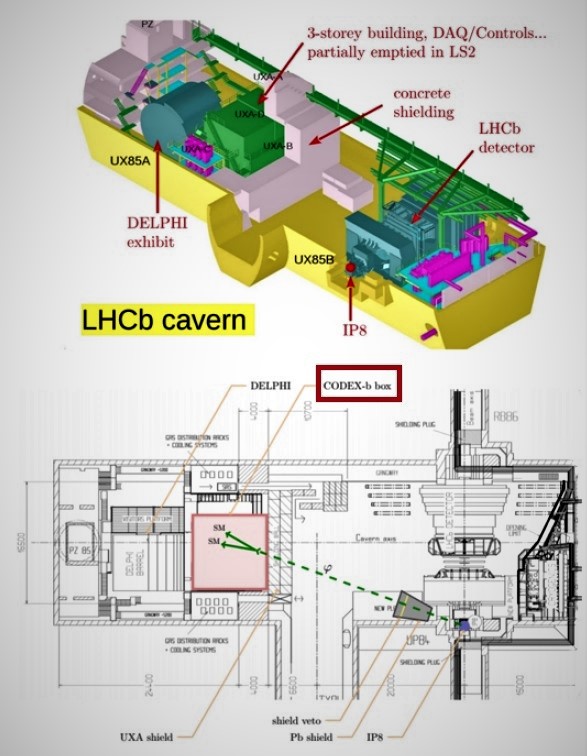Taking a closer look at LHC
|
(Taken from IGFAE) CODEX-b COmpact Detector for EXotic at LHCb Long-Lived Particles (LLP) are a type of especially elusive particles predicted in various theoretical models that go beyond the current Standard Model and that could now be one step closer to being detected thanks to a CODEX-b, a project co-lead by the Galician Institute of High Energy Physics (IGFAE), a joint center of the Xunta de Galicia and the University of Santiago (USC). CODEX-b is a detector proposed to be installed alongside the LHCb experiment, one of the LHC’s gigantic particle detectors, to find LLPs. When the protons collide in the accelerator, the LLPs “fly” between a few millimeters and several meters before disappearing, out of range of existing detectors that are unable to capture them and reconstruct their trajectory. As a preliminary to CODEX-b, the team is already building the CODEX-beta demonstrator, a smaller and cheaper version of the experiment that is expected to be completed in the next two years. Its goal will be to measure backgrounds, do preliminary analysis, and demonstrate that CODEX-b detection technology is feasible. CODEX-b is one of the most promising proposals to find LLP or discard its existence in the next 10 years. Discovering a long-lived particle would change our most fundamental concept of nature, and would link directly to some of the most important questions in physics today: What is the origin of our Universe? How can we explain its current composition? |
|
AUTHORS Xabier Cid Vidal, PhD in experimental Particle Physics for Santiago University (USC). Research Fellow in experimental Particle Physics at CERN from January 2013 to Decembre 2015. He was until 2022 linked to the Department of Particle Physics of the USC as a "Juan de La Cierva", "Ramon y Cajal" fellow (Spanish Postdoctoral Senior Grants), and Associate Professor. Since 2023 is Senior Lecturer in that Department.(ORCID). Ramon Cid Manzano, until his retirement in 2020 was secondary school Physics Teacher at IES de SAR (Santiago - Spain), and part-time Lecturer (Profesor Asociado) in Faculty of Education at the University of Santiago (Spain). He has a Degree in Physics and a Degree in Chemistry, and he is PhD for Santiago University (USC) (ORCID). |
CERN CERN Experimental Physics Department CERN and the Environment |
LHC |
IMPORTANT NOTICE
For the bibliography used when writing this Section please go to the References Section
© Xabier Cid Vidal & Ramon Cid - rcid@lhc-closer.es | SANTIAGO (SPAIN) |




